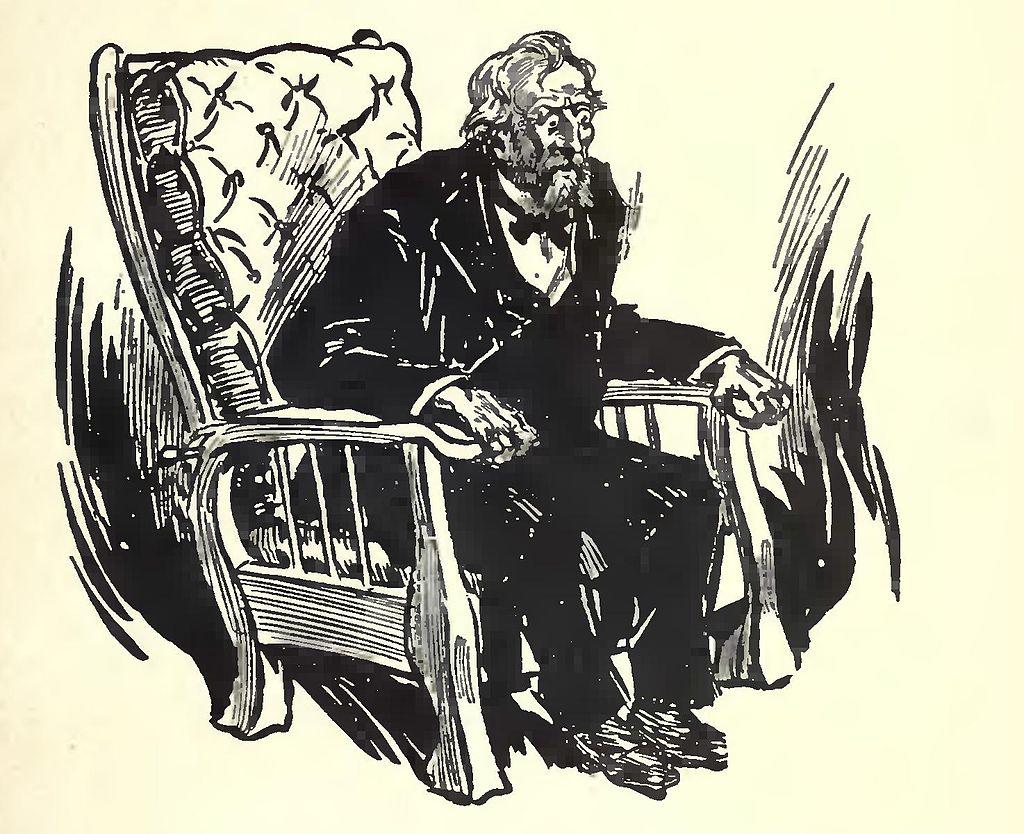Chapters
In many ways, The Strange Case of Dr. Jekyll and Mr. Hyde is a study in character. The gothic novella follows Dr. Henry Jekyll as he battles inner demons, which manifest themselves in an unexpected way…
In your GCSE analysis of The Strange Case of Dr. Jekyll and Mr. Hyde, it is crucially important to understand the characters, and how they are portrayed. Learning their motivations, their drives, and desires, can help you to better understand the book and its message.
Below, we explore the main characters in the novella, and the role each of them plays as this curious tale unfolds.

Dr. Henry Jekyll
Dr. Jekyll is a respected and accomplished scientist with a reputation for benevolence and philanthropy. Initially portrayed as a well-regarded member of Victorian society, Jekyll harbours a hidden desire to explore the darker facets of human nature. This inner conflict leads him to conduct experiments aimed at separating his virtuous and malevolent sides.
Jekyll is a complex character, torn between societal expectations and the allure of indulging in forbidden pleasures. As the narrative unfolds, the consequences of his experiments become increasingly dire, and the once-clear boundaries between his dual personalities blur. Jekyll's internal struggle serves as a cautionary tale about the dangers of suppressing one's darker instincts.
Mr. Edward Hyde
Mr. Hyde is the alter ego created by Dr. Jekyll's experiments. Hyde is characterised by his sinister appearance, cruelty, and lack of moral restraint. He becomes the embodiment of Jekyll's suppressed desires, allowing the scientist to indulge in forbidden pleasures without tarnishing his own reputation.
Hyde is presented to the reader as a scary man, and one who is not quite human in his appearance and manner.
“There must be something else,” said the perplexed gentleman. “There is something more, if I could find a name for it. God bless me, the man seems hardly human! Something troglodytic, shall we say? or can it be the old story of Dr. Fell? or is it the mere radiance of a foul soul that thus transpires through, and transfigures, its clay continent? The last, I think; for, O my poor old Harry Jekyll, if ever I read Satan’s signature upon a face, it is on that of your new friend.”
Hyde's presence is unsettling, and his actions grow increasingly violent and unpredictable as the story progresses and control is gradually lost. His malevolence becomes a force that consumes Jekyll, highlighting the dangers of unchecked desires and the potential consequences of tampering with the boundaries between good and evil. Hyde's character symbolises the darker, unrestrained aspects of human nature and serves as a manifestation of the consequences of moral compromise.
Mr. Gabriel John Utterson
Mr. Utterson is a lawyer and a close friend of Dr. Jekyll. He serves as the narrative's main point of view and investigator, driven by a sense of duty and concern for his friend. Utterson is characterised by his rational and methodical approach to problem-solving, as well as his unwavering loyalty to Jekyll.
He is often seen as the most relatable character and in some ways the voice of reason. Author Robert Louis Stevenson may have chosen his viewpoint for the book to keep the events relatable for the reader. The story is written in the third person, but follows Utterson for the most part.
Throughout the novella, he grapples with the mystery surrounding Mr. Hyde and becomes increasingly determined to uncover the truth. Utterson's character represents the voice of morality in the story, offering a perspective on the consequences of Jekyll's actions. His journey to unravel the mystery provides readers with a window into the psychological and moral complexities at the heart of the narrative.
Dr. Hastie Lanyon

Dr. Lanyon is a fellow scientist and friend of Dr. Jekyll and Mr. Utterson. Initially portrayed as a rational and pragmatic individual, Lanyon becomes a key figure in unveiling the mystery of Dr. Jekyll's transformation. Lanyon is sceptical of Jekyll's scientific pursuits and dismisses them as dangerous and unorthodox.
His character serves as a contrasting voice to the more cautious and reserved Mr. Utterson. The unfolding events, however, thrust Lanyon into a state of shock and disbelief as he becomes an unwilling witness to Jekyll's transformation into Hyde. The traumatic experience has a profound impact on Lanyon's already-failing health, and he eventually succumbs to his illness.
Driven by a commitment to scientific principles, Lanyon's character highlights the clash between traditional and experimental approaches to science in the Victorian era. His role in the narrative underscores the moral and existential dilemmas faced by individuals confronted with the consequences of tampering with the natural order.
Lanyon's testimony, as revealed through a letter addressed to Mr. Utterson, provides crucial insights into the events leading up to the climax of the story and contributes to the overall exploration of the dangers inherent in Dr. Jekyll's experiments.
“What he told me in the next hour, I cannot bring my mind to set on paper. I saw what I saw, I heard what I heard, and my soul sickened at it; and yet now when that sight has faded from my eyes, I ask myself if I believe it, and I cannot answer. My life is shaken to its roots; sleep has left me; the deadliest terror sits by me at all hours of the day and night; and I feel that my days are numbered, and that I must die; and yet I shall die incredulous.”
Sir Danvers Carew, MP
Sir Danvers Carew is a distinguished Member of Parliament in "The Strange Case of Dr. Jekyll and Mr. Hyde." While not a central character, his murder at the hands of Mr. Hyde becomes a pivotal moment in the narrative, signalling the increasing severity of Hyde's actions.
Sir Danvers Carew is depicted as an amiable and well-respected figure in society, making his brutal and unprovoked death at the hands of Hyde all the more shocking. His inclusion serves to emphasise the escalating danger posed by Hyde and heightens the urgency for Mr. Utterson to uncover the truth behind the mysterious Mr. Hyde.
Mr. Poole
Mr. Poole is Dr. Jekyll's loyal and devoted butler. Throughout the novella, he becomes increasingly concerned about the strange occurrences within Dr. Jekyll's home.
Mr. Poole is notable for his unwavering loyalty to his employer and his genuine distress as he witnesses the deteriorating physical and mental state of Dr. Jekyll. As the events unfold, Mr. Poole becomes a crucial source of information for Mr. Utterson, shedding light on the mysterious activities and transformations occurring within the confines of Jekyll's laboratory.
His character adds a layer of suspense to the narrative as he becomes a key player in the unfolding drama, attempting to assist Utterson in understanding the enigma surrounding Dr. Jekyll and Mr. Hyde. This is a crucial character for helping to move the narrative along, too. Allowing crucial information to filter through to our narrator, Mr. Utterson.
Exercise
Find three descriptions or narrative tools used to describe characters in the book. An example could be the narrator’s description of Hyde’s 'ape-like fury'. This synonym tells us a lot about the character.
List your three descriptive terms and then explain in one sentence what they tell us about the character.
For example:
Mr Hyde is described as showing ‘ape-like fury’. This compares him to a creature that is not human, suggesting a more primitive emotional and physical being. It also suggests an out-of-control anger within him.
Summarise with AI:












